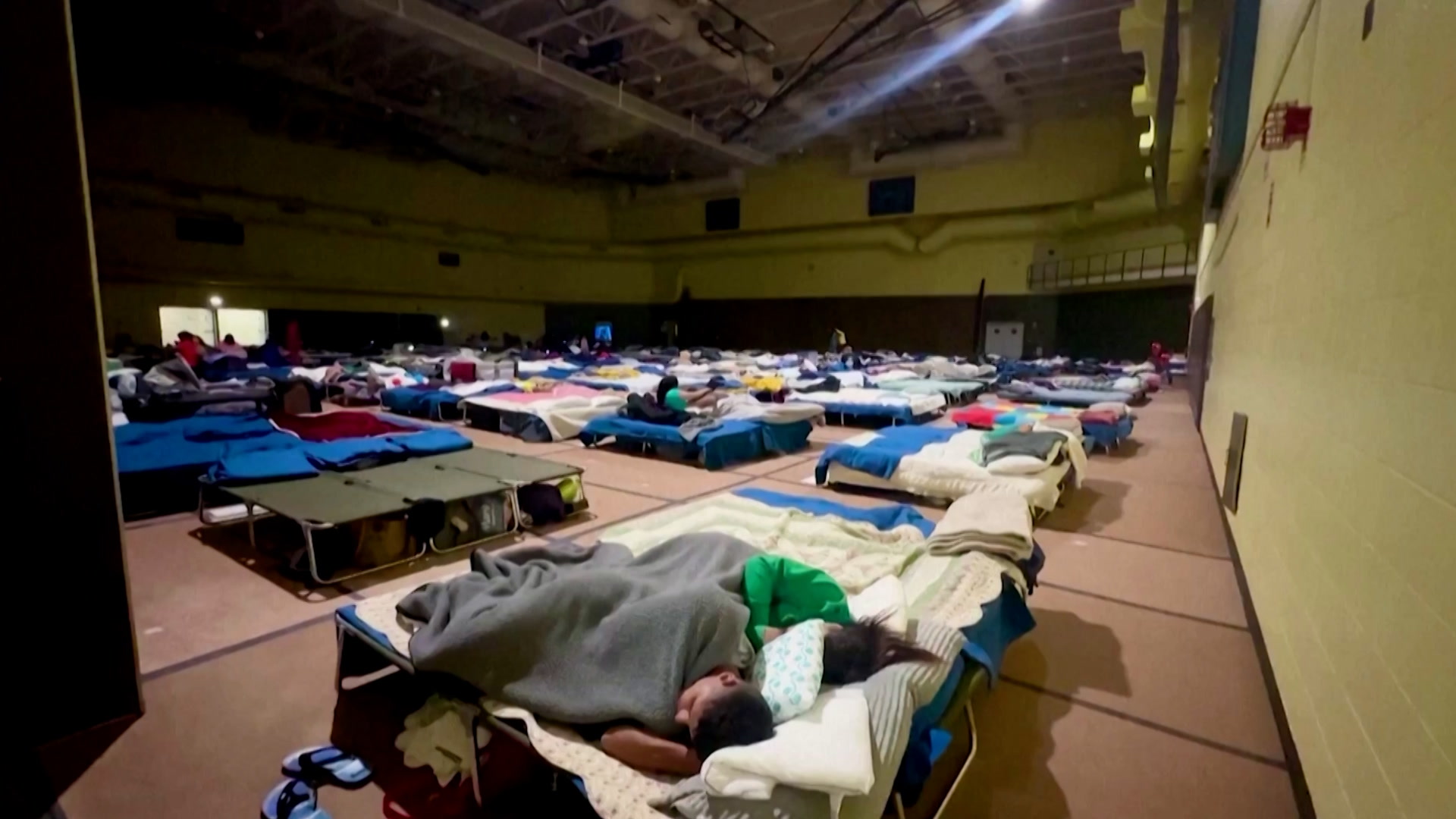California will use state properties as homeless shelters

Nearly 300 state properties will be made available. Image: REUTERS/Mike Blake

Get involved with our crowdsourced digital platform to deliver impact at scale
Stay up to date:
Human Rights
- The homeless population in California rose 16% last year to 151,000.
- Governor Gavin Newsom has announced plans to use state properties as homeless shelters and law changes.
- He proposed that health issues, including mental health, be addressed alongside homelessness.
California's homeless population soared 16% last year to around 151,000 with a statewide scarcity of affordable housing one of the root causes.
California will provide nearly 300 state properties for use as homeless shelters and should change its laws to make it easier for local officials to get the mentally ill off the streets, Governor Gavin Newsom said on Wednesday.
Newsom, a Democrat, devoted most of his annual State of the State address to the legislature to the homeless crisis.
"Let's call it what it is, a disgrace, that the richest state in the richest nation ... is failing to properly house, heal and humanely treat so many of its own people," Newsom said.
California's homeless population soared 16% last year to around 151,000 with a statewide scarcity of affordable housing one of the root causes despite government spending.
Newsom has already proposed spending an additional $750 million to get people into housing this year — on top of the more than $1 billion from previous allocations — and $695 million to expand homeless services.

Many of his proposals were aimed at cutting red tape and providing faster solutions. "We need more housing, not more delays," he said.
The state has begun rolling out emergency mobile housing trailers and services for homeless families and seniors, including in rural areas where homelessness is on the rise.
Newsom announced on Wednesday that 286 state properties - vacant lots, fairgrounds, armories and other state buildings - will be turned over to local governments at no cost to house the homeless.
He noted that a large portion of the homeless are mentally ill, a crisis that dates back decades to when state mental institutions were shuttered in favor of community health services that were never properly funded.
Newsom proposed lowering the threshold for making governments legal guardians for mentally ill homeless people who turn down medical aid, which would force them off the streets and into care.
California has to balance respect for civil liberties and personal freedom with a priority of helping people into life-saving treatment, he said.
He proposed that broader health issues, along with mental health, be addressed in dealing with homelessness.
"Health care and housing can no longer be divorced. After all, what's more fundamental to a person's well-being than a roof over their head?"
Newsom also called for exempting homeless shelters from the state's strict environmental reviews, which have delayed projects and given opponents who don't want them in their neighborhoods time to derail such proposals.
Republican President Donald Trump has frequently lambasted California over the homeless issue and took a swipe again on a visit to Los Angeles on Tuesday.
Trump said federal intervention might be necessary.
"And if they can't do it themselves, we're going to do it," the president said. "The federal government is going to take it over and we're going to do it."
Don't miss any update on this topic
Create a free account and access your personalized content collection with our latest publications and analyses.
License and Republishing
World Economic Forum articles may be republished in accordance with the Creative Commons Attribution-NonCommercial-NoDerivatives 4.0 International Public License, and in accordance with our Terms of Use.
The views expressed in this article are those of the author alone and not the World Economic Forum.
Related topics:
The Agenda Weekly
A weekly update of the most important issues driving the global agenda
You can unsubscribe at any time using the link in our emails. For more details, review our privacy policy.
More on Human RightsSee all
John Letzing and Minji Sung
April 9, 2024
Marie McAuliffe
April 8, 2024
Liam Coleman
March 7, 2024
Kate Whiting
July 12, 2023
Christa Odinga-Svatenson and Diana Alvarez
June 20, 2023






